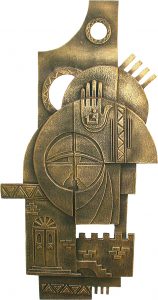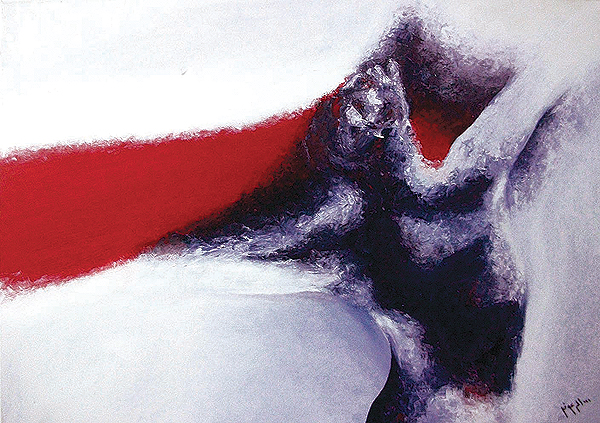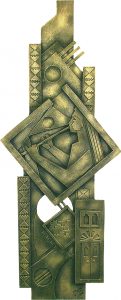The existence of an effective, professional, and independent judiciary is a cornerstone of the rule of law, separation of powers, and democracy itself. An impartial, efficient, independent, and active judiciary necessitates beholding the judicial functions as a societal prerogative – undertaken to support the individual and community – and certainly not one of seeking personal gain.
While an independent and effective judiciary rests on many elements, there are six basic principles that underpin its fundamental aspects as the foundation of a functional state – principles which are soundly applicable to the State of Palestine in spite of its complex historical circumstance.

The first is the principle of separation of powers, which characterizes modern democracies. Reliant on a parliamentary system of government, the people choose their legislative representatives and hold them responsible for the enactment of laws on their behalf. The legislative authority appoints officials to form a cabinet that constitutes part of an executive authority and is responsible for the enactment of laws and legislation – also on behalf of the electorate – a process that is duly undertaken by the government infrastructure that includes ministries, departments, and enforcement bodies. Supervision of the application of laws is under the judicial authority which oversees the very sovereignty of the state and aims to assure the legality of actions – undertaken by government agencies and otherwise – in accordance with constitutional guarantees. Separation between each of these “pillars” of the state allows for checks and balances on power – each authority carries out its duties within specific parameters, not encroaching on the others, while ensuring checks and balances against possible domination exercised by the executive. In such a manner, absolute authority cannot emerge, and all three branches fit together in a tight (if sometimes tense!) cooperation in order to achieve the democratic goal of protecting public interest and upholding individual and collective rights.
The second is the principle of judicial oversight on the application of law. To achieve and maintain community security and stability over legislative and executive powers – both political in nature – the judge and jury manage conflict amongst individuals or between individuals and the executive regarding the manner in which it enforces law. Being able to plead before a judge and having access to court are fundamental and legitimate rights, not to be toyed with or manipulated. As such, judicial control is the ultimate expression of rule of law and constitutes the foundational criteria of a democracy – once the judiciary has ruled, the executive body cannot take contrary or defying action. In this manner, all citizens commit to maintaining the rights of others in accordance with the provisions of the law as a means to achieve security and stability.
♦ A quick and viable manner by which the judicial authority and public prosecution can be unified and rebuilt in order to better serve Palestinians involves as initial steps the holding of general elections for a legislative council and president.
The third principle is that of complete independence of the judicial authority as a manifestation of sovereignty to be protected and isolated from the other two authorities of state in order to impartially conduct its work. Operating in isolation from the populace, the judiciary shall necessarily be excluded from direct supervision of the people – by definition the source of authority. Oversight of judicial work is achieved through other legal means that include public trials, public sentencing, judicial inspection (evaluation and audit of judicial performance), and anti-corruption infrastructure.
The fourth principle establishes the judicial function as the keeper of social and political security. Such a process is underpinned by the complete segregation of political-party affiliation from the judicial function. Should this line be breached, one can no longer speak of an independent judiciary capable of addressing social, economic, and political conflicts – a circumstance which invites corruption and application of the “law of the jungle,” obstructing the rule of law and ultimately compromising the development of the state itself. In effect, the system becomes susceptible of allowing those who guard the law to break the law, particularly dangerous should that include the judges themselves.
The fifth principle provides for constitutional protection of an independent judiciary and judges. Unequivocally, judges must be left to do their job without fear, threat, or interference in a stable environment that guarantees their security. Such protection is the reciprocal side of trust in judicial independence, and while it will consider judges as human and susceptible to error, it will nonetheless keep the overall faith in the appeal and inspection functions by keeping human error in check. Modern litigation systems split the judicial process to “regular” and “appeal” levels in order to encourage scrutiny of judicial performance and decisions, keeping judges in check with standards and regulations.
The sixth principle is that of the effectiveness of the legal profession and its independence. Lawyers are the “right hand” of judges in applying justice and assuring rule of law by ensuring the right to effective defense, protecting freedoms, providing for fair trial, and safeguarding equality for all before the law.
♦ Considering the prolonged period of political division between the West Bank and Gaza, and the unfortunate reality that general elections have neither taken place nor are likely to take place in the foreseeable future, an urgent national imperative exists to rebuild and unify the judiciary.
For Palestinians, to ensure adherence to the six principles elaborated above necessitates a unification of the two existent judicial bodies – that of Gaza and that of the West Bank. Reversing the devastating impact of the political division on the judiciary requires a common vision, objective processes, and the standardization of tools and mechanisms to build a single, unified judicial authority capable of functioning throughout the territory and manifesting the abovementioned characteristics.

Currently, political, executive, and administrative considerations have compromised the executive’s impartiality, compounded by an apparent absence of political will to establish effective and fair jurisdiction for Palestinians. The executive has become entangled with the judiciary as an administrative service station rather than as a pillar of safeguarding law and rights. This reality has induced a loss of confidence in the judiciary and compromised the principle of judicial independence.
Where to go from here?
Locally and internationally, a sustained push must be made to hold general elections for a new legislative council and president. The resultant legislative council shall call for a national conference of civil society, academics, and community representatives to select a national committee of professionally qualified, independent, and impartial actors who, by presidential decree, would be entrusted with the task of evaluating the public prosecution and other judicial law-enforcement bodies. Those qualifying would stay in post, while others would be transferred to alternative government functions or retire, retaining pension privileges. Once having scrutinized existing judges, the committee would turn to the task of selecting judges for vacancies. Committee decisions on appointments would be effective from date of issue and not subject to appeal. The committee would then be granted the power to propose amendments to judicial laws as it deems necessary, for approval by the legislative council and ratification by the president. Once this mission is accomplished, the high judicial council would be formed as per provisions of the relevant judicial laws.

The task would then turn to the formation of the constitutional court. The committee would review the performance of the constitutional court, also evaluating the bill itself and the necessity of establishing the court. If deemed necessary, relevant laws would be reviewed and amendments proposed to guarantee the court’s independence prior to its formation. The legislative council would then approach the president for ratification of the constitutional court. Finally, the committee would look into the administrative law that regulates the function of government to ensure the establishment of a two-tier litigation system that provides for appeal courts. Similarly, committee decisions would be forwarded to the legislative council for approval and to the president for ratification.
After years of political division in the State of Palestine, it is now the national prerogative of civil-society organizations and academic institutions to establish a consensus and call for the formation of a national committee to put in motion procedures for reconciliation and unification of the judiciary. Impartiality in the committee must be established – be it regarding political affiliation, territorial adherence, or familial association – and intense scrutiny must be observed in establishing the judiciary. Only in this manner will the State of Palestine overcome the myriad obstacles that exist in order to close the democratic deficit and to consciously work towards good governance and the solid foundations of a state.
» Advocate Ibrahim al-Barghouthi is the founder and executive director of The Palestinian Center for the Independence of the Judiciary and the Legal Profession, Musawa. He is also a consultant member of the Legislation Advisory Committee at the Ministry of Justice and a member of the Anti-Corruption Arab Network.
* Translated from Arabic by Alice Yousef.


